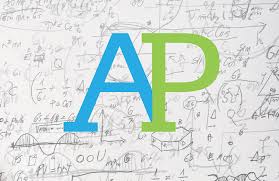
Data Science Roadmap: Your Guide to a Successful Career in 2024
Data Science continues to be a dynamic field offering lucrative opportunities and challenges that require a deep understanding of both theory and practical applications. If you’re aiming to break into this exciting industry in 2024, a strategic roadmap outlining the necessary steps and skills can significantly enhance your chances of success. Here, we delve into a comprehensive guide that charts a clear path from foundational learning to advanced expertise in data science.
1. Fundamental Knowledge and Skills
Mathematics and Statistics
A strong foundation in mathematics, especially calculus and linear algebra, along with statistics and probability, is crucial for understanding data science algorithms and models.
Programming
Proficiency in programming languages like Python or R is essential. Python is particularly favored in the industry due to its simplicity and the extensive availability of data science libraries like Pandas, NumPy, and Scikit-learn.
Data Manipulation and Analysis
Learn to manipulate and analyze data using SQL for database management and Python or R for data cleaning, transformation, and exploratory data analysis.
2. Machine Learning and Advanced Analytics
Machine Learning Algorithms
Understand various machine learning techniques such as supervised, unsupervised, and reinforcement learning. Familiarize yourself with algorithms like linear regression, decision trees, clustering, and neural networks.
Advanced Modeling Techniques
Explore advanced topics like ensemble methods, natural language processing, and deep learning to handle complex data science problems.
Tools and Platforms
Gain proficiency in platforms like TensorFlow, Keras, and PyTorch for building sophisticated models, and become comfortable with data visualization tools such as Matplotlib, Seaborn, and Tableau.
3. Real-World Applications and Specializations
Big Data Technologies
Knowledge of big data platforms like Apache Hadoop and Spark is important as you deal with large datasets that require processing power beyond traditional database capabilities.
Domain-Specific Knowledge
Consider specializing in a specific industry such as finance, healthcare, or marketing where data science skills can be directly applied to solve industry-specific problems.
4. Practical Experience and Portfolio Development
Projects and Internships
Engage in practical projects, either independently or through internships, to apply your learning in real-world scenarios. Projects can range from predictive modeling to data visualization and should showcase a variety of skills.
Portfolio Creation
Build a portfolio that includes case studies, analyses, and a detailed explanation of your projects. This portfolio will be crucial when applying for jobs as it provides tangible proof of your capabilities.
5. Professional Growth and Networking
Continued Learning
Data science is an ever-evolving field. Stay updated with new tools, technologies, and algorithms by participating in workshops, online courses, and certifications.
Networking
Join data science communities, attend industry conferences, and connect with professionals via platforms like LinkedIn. Networking can lead to mentorship opportunities and job offers.
6. Preparing for the Job Market
Resume and Online Presence
Craft a data-driven resume that highlights your skills, education, and project experiences. Maintain a professional online presence that can attract potential employers.
Interview Preparation
Prepare for job interviews by practicing common Data Science Interview Questions. These questions often cover statistics, programming, machine learning concepts, and scenario-based problem-solving.
Understand the Industry
Gain insights into the business side of data science. Understanding how data-driven decisions impact business and learning to communicate complex ideas to non-technical stakeholders are crucial skills.
Following the Data Science Roadmap
Adhering to the outlined data science roadmap will equip you with the knowledge and skills required to navigate the complexities of the data science field successfully. This structured approach not only prepares you for technical challenges but also enhances your ability to contribute effectively to any organization, thus making you a competitive candidate in the global job market of 2024.
By methodically following these steps and adapting to new developments in the field, your journey from novice to expert will be marked by continuous learning, practical experience, and professional growth, opening doors to a rewarding career in data science.


